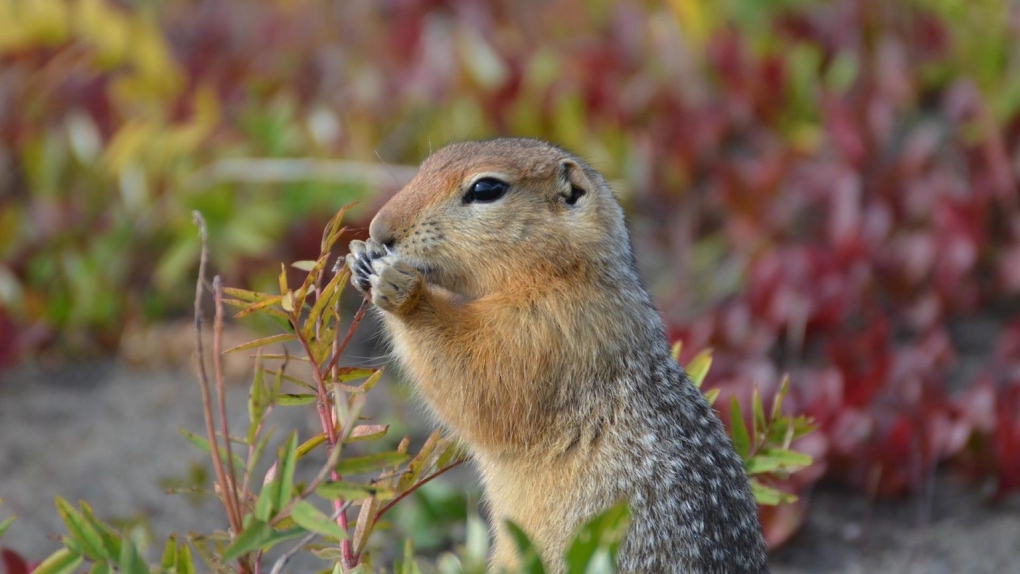As temperatures rise in the North, scientists say it's affecting how Arctic ground squirrels hibernate -- and it could have serious consequences for the species.
The furry critters survive the harsh Arctic winters by burrowing underground and hibernating for eight months before emerging in the spring ready to eat and breed. As the males go through seasonal puberty every year, they normally wake up about a month earlier so they are ready to mate when the female Arctic ground squirrels resurface.
But in a new study published in Science, researchers found that over the past 25 years, female squirrels have been ending hibernation about 10 days earlier in response to earlier spring thaw while the males have not.
"If this continues, females are going to be ready to mate with males before males are physiologically able to mate with females," said senior author Cory Williams, assistant professor in the department of biology at Colorado State University, who has been studying Arctic ground squirrels for more than 15 years.
Researchers said that could mean fewer "date nights," which could affect reproduction.
Williams said because male squirrels end hibernation early, they are less responsive to environmental cues than females. He said so far, the changes among female hibernation patterns haven't affected squirrel populations and, in the future, males could adapt to stay in phase with females.
"Predicting the long-term ecosystem consequences of climate change is incredibly difficult due to ecological interactions, but it is clear that Arctic systems are rapidly changing," he said.
Other potential consequences of a shorter hibernation season are that squirrels could increase their exposure to predators such as foxes, wolves and eagles.
However, it's not all bad news. It could also mean squirrels will not have to use as much stored fat and energy during hibernation. Beginning foraging earlier could also lead to healthier offspring.
Other changes researchers observed are that squirrels are delaying the timing and duration of heat production during hibernation in response to slower freezing of the permafrost. While squirrels drastically reduce their lung, heart, brain and body functions during hibernation, they do use some energy to generate heat from stored fat to keep from freezing, even as their body temperature drops below 0 C.
The study's authors analyzed 25 years of air and soil temperatures from two locations in the Alaskan Arctic. They also measured the abdominal and skin temperatures of 199 squirrels over the same period.
"These Arctic systems are changing relatively rapidly," Williams said, noting other studies have found it is warming four times faster than the global average.
"Our study really indicates that this is happening and it's happening rapidly, and we should expect for these ecosystems to change across time."
This report by The Canadian Press was first published May 28, 2023.
This story was produced with the financial assistance of the Meta and Canadian Press News Fellowship.






































